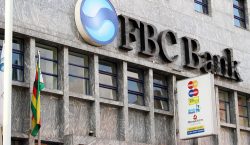



South Africa’s Reserve Bank (SARB) has a fintech unit that investigates emerging trends and tests how viable they are. This same unit was the brains behind project Khoka (an interbank payment platform based on Ethereum) last year.
That same unit is now investigating the possibility of transitioning to a digital currency backed by the Rand. SARB recently put out a tender for ‘prospective solution providers in anticipation of a feasibility project on a digital currency’.
Some of the established targets that the Central Bank Digital Currency (CBDC) for it to be considered viable include:
The fact that the Reserve Bank wants the digital currency to be accessible without need for a bank account is particularly interesting as it brings to question what will happen to the banks if it is indeed adopted.
SARB probably wants to go down this route for the sake of financial inclusion as the banking system tends to leave a large number of citizens unable to access financial services. The Reserve Bank probably also noticed the impact of mobile money on financial inclusion in neighbouring countries, Zimbabwe and Kenya.

It will be interesting to see where this fintech initiative ends up and hopefully SARB shares their findings for all to see even if the project is not a success.
The post South African Reserve Bank Keen To Test Rand-Backed Digital Currency appeared first on Techzim.
Sorry. No data so far.

